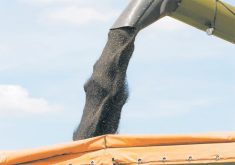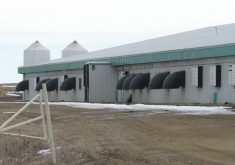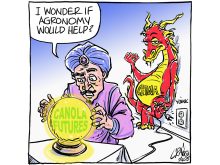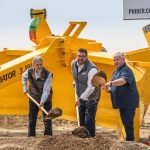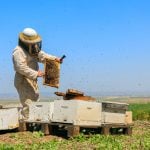George & Joe
It makes me wonder why there is so much pressure now from certain folks to certain MLAs to change the system around the licensing of land agents in Alberta.
The rural landowners in the province have been complaining for years about the quality of land agents at their kitchen table – continuous complaints around land agents not knowing anything, being pushy, not appreciating the farming way of life and as some have said, “the land agents that come to my door are stupid.” “We need more knowledgeable agents; they need to know agriculture, the soils, land use and certainly the laws of the land.” “They need schooling and a licensing process to keep the bad ones out.”
Read Also
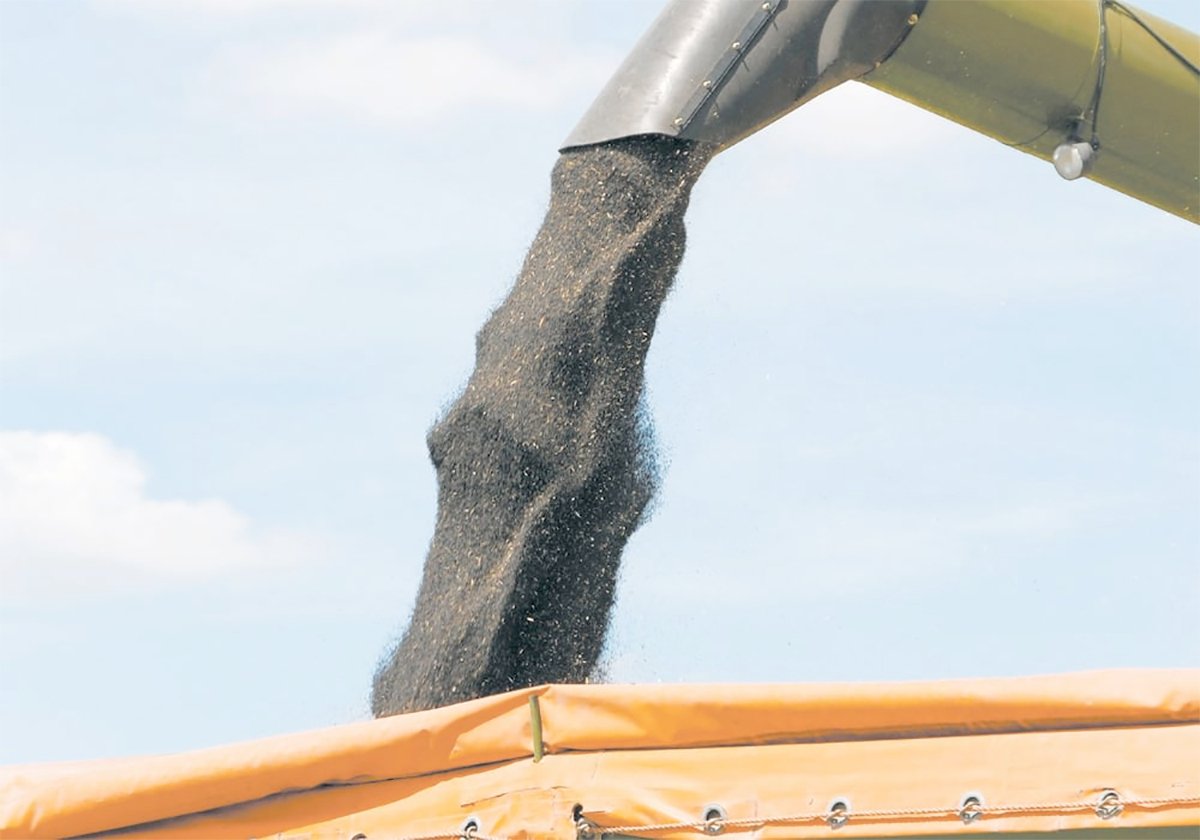
Determining tariff compensation will be difficult but necessary
Prime minister Mark Carney says his government will support canola farmers, yet estimating the loss and paying compensation in an equitable fashion will be no easy task, but it can be done.
So the province instituted a process of licensing with an interim licence, a learners permit if you will, and a permanent licence; the full licence. With this there is an educational requirement, examinations and an articling period with experienced licensed land agents. And if a land agent messes up, there is an investigation by a hard-working and dedicated government officer.
Now after roughly 40 years of development and refinement and millions of dollars of investment, certain rural landowners are saying to their MLAs, “Hey this licensing thing is restrictive. We want anyone to be able to negotiate on behalf of landowners and they should be exempt from licensing. The landowner advocates shouldn’t have to get a licence and the oil companies will have to pay us for our time.”
The sad truth, I’m afraid, is in the story of George and Joe.
“Hey Joe, when these changes come to the land agents licensing act, you and I can negotiate for each other and make a pile of money from the oil and gas companies.
“I’ll tell you what, when the land agent comes to your place you pretend to be stupid and I’ll negotiate for you and get paid.
“And when the land agent comes to my place, I’ll pretend to be stupid and you can negotiate for me. That way we can maximize the money that you and I are going to make off the oil patch. Doesn’t that sound good?”
What will the taxpayer think of their investment in people, and in the colleges that train them, when the doors are thrown wide open? And what will this say about the validity of the complaints that have been laid at the feet of the government over the past 40 years?
– Brian Christianson,
Olds, Alta.
Burning food
Is it right to burn food? … My answer is no. It is not right to burn food for fuel and if one considers the moral and ethical issues associated with this practice, well, that only reinforces my answer.
There are more than one billion people dying of starvation on this planet, yet in the ultimate wisdom of our governments, they endorse the subsidization of biofuel industries to reduce the reliance on nonrenewable petroleum resources.
Farmers are now becoming producers in the process of growing feed grains for fuel, to make their tractors and farm equipment operate, so they can grow and harvest grain to make fuel, and on it goes. …
Farm organizations and farmers would be well advised to critically evaluate the suggestion that ethanol is going to be the silver bullet that solves the farm income crisis.
In the meantime, there are people starving.
– John Fefchak,
Virden, Man.
Land agents
As a licensed land agent who works on behalf of landowners, I would like to reply to Lowell Haynes opinion piece in the May 10 issue….
Oil and gas land agents are not professionals even if they would like to let on they are. They are simply agents licensed by the province …. No professional standard of conduct should be implied by the land agent; certainly not expected by landowners who are compelled to deal with these land agents and their masters, the energy companies, or else have their own land forcefully taken from them by the government of Alberta.Â
It is equally misleading to suggest that a low number of Alberta Energy and Utilities Board or Surface Rights Board hearings is somehow an indicator that there is not a problem in rural Alberta.
It is far more likely that the low number of forced takings of the landowners’ land that actually make it to the AEUB or the SRB has more to do with the fact that the landowner is not fairly treated by these government boards and that landowners understand the process is always skewed in favour of the energy industry.
I personally know of many oil/gas land agents who have acted in what I consider to be an unethical manner who have not been called upon the carpet by the Registrar of Land Agents. The sad fact is that there is an impossible burden of proof required of a landowner who brings a complaint.
The lies and misdeeds tend to be verbal and cannot be substantiated yet that does not mean they did not happen. One would have to be forgiven if landowners had the perception that the Registrar of Land Agents was not an impartial regulator of land agents and instead was pro oil/gas and anti landowner.
There is no other conclusion to be reached when you consider that Ray Strom was the only individual I am aware of who was charged under the Land Agents Licensing Act and that Mr. Strom represented landowners, while on the other hand for decades there has been evidence of lies, deceptions, trickery, misconduct and misdeeds on the part of oil/gas land agents yet not one of those people has ever had to appear before a judge….
My advice to Mr. Haynes and land agents like him is landowners should be able to have whoever they want represent them – a trusted neighbour, a son or daughter, a family friend and that the oil/gas sector’s attempts to restrict who can offer advice to landowners has far more to do with limiting the landowners’ ability to get much needed advice than any real concern for the welfare of the men and women who farm the land that sits above everyone’s oil and gas.
– Rob Somerville,
Endiang, Alta.
Built by farmers
I have become very distressed over the last few months at the dogfight to acquire the remnants of the four great farmer-owned co-operative grain organizations that my father and thousands more like him put so much energy into building.
They belonged to the “take it or take it home” generation of farmers. It was the answer they got from the many grain companies that followed the railway west. …To see these organizations blown away like a three-day prairie blizzard was almost more than one could take, and by outside money that will have to be serviced….
I hope history will not forget men like E.A. Partridge, T.A. Crerar, J.E. Brownlee, A.M. Riciman and Lorne Hehn, who UGG (provided) to the Canadian Wheat Board and became its chief commissioner and did a commendable job. I knew him well, as I was on the advisory committee to the CWB, having been elected by farmers in southern Saskatchewan…
My first lesson in grain growing was my involvement in the local grain club sponsored by the (Saskatchewan Wheat) Pool, as did many farm boys at that time. I was later asked to run as a delegate and later appointed to the board of directors, then vice-president. I left the Pool in 1987.
We had discussions on amalgamation of the three pools then. I felt it was only a matter of a few months and it would happen.
But it seemed that egos, both provincial and individual, trumped the good and welfare of farmers. The opportunity to continue the work started by our farmers was lost.
I can understand this happening in a private company, but not with a group of co-operatives that grew from the same culture….
There seems to be great interest in where the new entity will have its head office and what the name will be. If someone wants my view, it should be right where it is. Saskatchewan produced as much grain as the other two provinces combined. Alberta, at times, cannot supply enough feed grain to service their large feeding industry and have imported corn and barley from others.
As for a name, if it does not in some way reflect the many thousands of men and families that built these four organizations and the quality control and grading system of the Canada Grain Commission that has kept us in the game against big subsidies of other countries, there will be a lot of upset people. Welcome to the past.
– Avery Sahl,
Mossbank, Sask.



